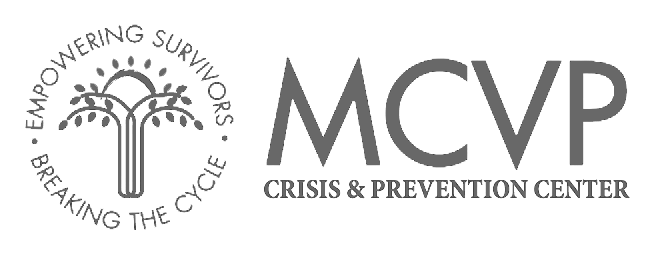GET HELP NOW
|
Press Release from Governor Chris Sununu May 31, 2024 Today, Governor Chris Sununu issued the following statement regarding HB 1003, relative to name changes for inmates, parolees, and convicted felons:
“It is our shared responsibility to provide for the protection of the most vulnerable among us, especially children and victims of violent crime,” said Governor Chris Sununu. “In signing this bill, the State of New Hampshire is safeguarding victim rights by increasing notification requirements to victims and their families.” “We are grateful to Governor Sununu for recognizing the significance of this legislation, which will put important safeguards in place to ensure violent offenders can’t simply erase their past and escape accountability through a name change,” said Amanda Grady Sexton, Director of Public Affairs, NH Coalition Against Domestic and Sexual Violence. “We were honored to support several courageous survivors in advocating for the passage of HB1003 this session and are thankful to the lawmakers who heard survivors’ stories and worked with them to make this critical change to state law.” May 29, 2024
FOR IMMEDIATE RELEASE Media Contact: Alyssa Dandrea, [email protected] “We have nothing but admiration for the brave survivor who shared her truth and paved the way for so many other domestic violence victims to break their silence. This survivor endured 6 years of legal proceedings in a high-profile case brought against Mr. Woodburn, who was in a position of power with higher political ambitions,” said Amanda Grady Sexton, director of public affairs for the New Hampshire Coalition Against Domestic and Sexual Violence. “We are grateful to the Attorney General’s Office for its work on this challenging case and for taking domestic violence seriously. It is important to note that the convictions of criminal mischief still stand, and it’s anticipated that Mr. Woodburn will serve jail time for those crimes.” May 22, 2024
FOR IMMEDIATE RELEASE Media Contact: Amanda Grady Sexton, [email protected] Today, the NH Senate took a vital step in upholding statewide protections for victims by indefinitely postponing the vote on HB378. The House passed version of this bill would have inadvertently weakened New Hampshire’s survivor’s bill of rights and prevented child sexual assault victims from accessing critical medical care and treatment. This legislation would also have put more responsibility on survivors to collect and maintain their own evidence. “As a state, New Hampshire has consistently served as a national leader in advancing the rights of sexual assault victims and survivors, and we are grateful that the Senate continues to protect these important rights. We look forward to working with legislators in the future to continue to strengthen these rights so that we can maintain the strongest laws in the nation,” said the Coalition’s Director of Public Affairs Amanda Grady Sexton. Over half the states in the U.S. have adopted the very same language as current New Hampshire statute, which is in line with national best practice. HB378 conflicts with these best practices for providing trauma-informed and medically driven responses to sexual assault in New Hampshire and was strongly opposed by The Coalition Against Domestic and Sexual Violence, the NH Department of Justice, the State Forensic Lab, the NH Sexual Assault Examiner Program, and members of law enforcement. We thank the Senate for their vote to support victims of crime. May 14, 2024
FOR IMMEDIATE RELEASE Media Contact: Alyssa Dandrea, [email protected] Today, New Hampshire is set to join at least 24 other states in the country in enacting critical housing protections for survivors of domestic and sexual violence. By signing HB261 into law, Governor Sununu took an important step to ensure that victims and their children will no longer be forced to stay in a dangerous home. HB261 adds important updates to RSA 540, New Hampshire’s Tenancy Statute, that will allow victims of domestic violence, sexual assault, and stalking to break a lease in the private housing market. This law mitigates both the potential safety and financial risks of both landlords and victims, ensuring that a victim has avenues to leave an abusive situation, while also ensuring that landlords are not unnecessarily burdened by the sudden departure of a tenant. “There are many reasons a survivor may need to break their lease to maintain their safety. Everyday crisis center advocates and legal representatives across the state work with survivors who need support in fleeing violence or creating security within their homes. Advocates and attorneys know and understand that when housing survivors, there are exceptional considerations to be made including safety and confidentiality,” said Rachel Duffy, the Coalition’s Housing and Economic Justice Manager. “On behalf of our clients who are seeking to escape abusive relationships, we appreciate the protection this provides. The last thing survivors need to be worrying about is their housing,” said Dawn McKinney, Policy Director at New Hampshire Legal Assistance (NHLA). Nationally and in New Hampshire, there are similar protections afforded to survivors within public housing under the expanded Violence Against Women Act (VAWA) protections reauthorized in 2022, but these protections do not extend to survivors in private and mainstream rentals. HB261 sets to equalize protections for all survivors in our state and is closely modeled from the protections outlined in VAWA. The Coalition and NHLA worked closely with numerous vested partners in the state, such as 603 Legal Aid’s Fair Housing Team, Survivor Advocates, Landlords, and National Partners (NNEDV). It truly was a collaborative effort, informed by the invaluable contributions of our partners who worked together to craft this substantial and critical legislation. About the Coalition: NHCADSV is a statewide network of 12 independent member programs committed to ending sexual violence, domestic violence, and stalking, through direct services to victims, community education, and public policy advocacy. The NHCADSV and its 12 member programs do not discriminate based on gender, age, health status (including HIV-positive), physical, mental, or emotional ability, sexual orientation, gender identity/expression, socio-economic status, race, national origin, immigration status, or religious or political affiliation. Press Release from Governor Chris Sununu May 14, 2024 Today, Governor Chris Sununu issued the following statement after signing HB 261 into law, relative to rights of tenants in cases of domestic violence:
"New Hampshire is stepping up to protect survivors of sexual assault, domestic violence, and stalking by ensuring they have the ability to live in safe environment without jumping through legal hurdles to do so," said Governor Chris Sununu. "I thank the stakeholders who came together to get this done!" "In New Hampshire we work together to pass common sense laws that provide protections for victims of domestic violence, sexual assault and stalking," said Amanda Grady Sexton, Director of Public Affairs for the NH Coalition Against Domestic and Sexual Violence. "HB 261 will allow victims of abuse to end their lease when their safety is at risk. Governor Sununu's signature on this bill will help ensure that victims and their children will no longer be forced to stay in a dangerous home." May 3, 2024
FOR IMMEDIATE RELEASE Media Contact: Alyssa Dandrea, [email protected] “May this 38-million-dollar verdict send a message to every child predator and every institution that has enabled them. This verdict is a bold and emphatic statement that children deserve to be heard and believed. We commend David Meehan for speaking the truth, and we are grateful to him and all of the victims that have come forward to demand justice and systemic change,” said Director of Public Affairs Amanda Grady Sexton. We encourage anyone who has been sexually or physically abused, no matter when the abuse occurred to seek confidential and compassionate support or information through New Hampshire’s crisis centers. Caring advocates are available 24/7 at the statewide helpline at 1-866-644-3574. About the Coalition: NHCADSV is a statewide network of 12 independent member programs committed to ending sexual violence, domestic violence, and stalking, through direct services to victims, community education, and public policy advocacy. The NHCADSV and its 12 member programs do not discriminate based on gender, age, health status (including HIV-positive), physical, mental, or emotional ability, sexual orientation, gender identity/expression, socio-economic status, race, national origin, immigration status, or religious or political affiliation. Press Release from Congresswoman Annie Kuster April 10, 2024 Washington, D.C. — Today, Congresswoman Annie Kuster (D-NH) and Congressman Marc Molinaro (R-NY) introduced the Teen Dating Violence Prevention Act, bipartisan legislation to equip young people with the tools and education to engage in healthy relationships. The bill directs the Secretary of Health and Human Services to establish a grant program to provide schools and youth-serving organizations with funding opportunities to develop tools and educational resources aimed at recognizing and preventing teen dating violence.
“We applaud Congresswoman Kuster’s initiative to combat teen dating violence by introducing this important legislation. Primary prevention efforts are the most underfunded interventions and yet often make the biggest impact on our statewide efforts to end teen dating violence. We are grateful for the Congresswoman’s ongoing leadership in the area of violence prevention,” said Amanda Grady, Director of Public Affairs at the New Hampshire Coalition Against Domestic & Sexual Violence. March 5, 2024
FOR IMMEDIATE RELEASE Media Contact: Alyssa Dandrea, [email protected] Our systems of justice failed Vernon Hayford—and so many others in the Granite State. Tragically, this is just the most recent in a string of cases where we see a decades-long history of escalating violence but no true accountability or adequate interventions. The result was fatal. Carrie Drake has a history of numerous vicious assaults with deadly weapons and attempted murder against a prior intimate partner, and she previously stabbed Vernon Hayford in 2020. A review of her criminal history shows that time and time again, her charges were dropped, pled down to far lesser charges, or she received suspended sentences for her extremely violent actions. Carrie Drake consistently breached the conditions of her bail and failed to seek court-ordered treatments, and yet little was done to hold her accountable and to ensure her victims’ or the public’s safety. There were multiple opportunities for the system to intervene before she escalated to the point of homicide. "Domestic violence homicides are predictable and preventable. When interpersonal violence continues and becomes more severe, the outcome is so often that someone dies. Those who commit violence in our communities must be held accountable for their actions. Our systems must also enforce compliance with mental health and substance abuse treatments when they are a factor in domestic violence cases," said Director of Public Affairs Amanda Grady Sexton. Our hearts are with the victim in this case, and we hope that the systems—including prosecutors and the courts, as well as legislators who craft policies that are intended to protect the public—are willing to conduct intensive case reviews to determine how a person with a violent 18-year history was ever in a position to commit the ultimate act of domestic violence. NH’s 24/7 Statewide Domestic and Sexual Violence Helpline: 1-866-644-3574 About the Coalition: NHCADSV is a statewide network of 12 independent member programs committed to ending sexual violence, domestic violence, and stalking, through direct services to victims, community education, and public policy advocacy. The NHCADSV and its 12 member programs do not discriminate based on gender, age, health status (including HIV-positive), physical, mental, or emotional ability, sexual orientation, gender identity/expression, socio-economic status, race, national origin, immigration status, or religious or political affiliation. For more information visit www.nhcadsv.org New Hampshire House Bill Allows Domestic Violence Abusers to Keep Deadly Weapons After Arrest1/10/2024
January 10, 2024
FOR IMMEDIATE RELEASE Media Contact: Alyssa Dandrea, [email protected] On Friday, January 12 at 9:30 a.m., the House Criminal Justice and Public Safety Committee will hold a public hearing on HB1064, relative to penalties for violation of protective orders. The Coalition strongly opposes this bill, which is one of the most dangerous legislative proposals we have seen at the New Hampshire State House in years. HB1064 seeks to repeal part of our state’s domestic violence law, which directs law enforcement to seize firearms and other deadly weapons after an abuser is arrested for knowingly violating a protective order. In a state where domestic violence is a factor in more than half of all homicides, abusers must face consequences for threatening and abusing partners, family members, and children with firearms and other deadly weapons. It is critical that abusers are prohibited from accessing weapons, otherwise more domestic violence cases will result in injury or death. We have an opportunity to make our communities safer and instead some of our elected officials are attempting to turn back the clock to the 1970s, when systems of accountability for domestic violence offenders were merely nonexistent. Coalition Public Policy Specialist Pamela Keilig said, “With so many pressing issues facing victims and survivors in New Hampshire, it’s inexcusable that this bill is even up for debate in 2024. Long ago the state legislature recognized the seriousness of domestic violence in our communities. HB1064 is an open invitation for future violence and has no place in our state.” About the Coalition: NHCADSV is a statewide network of 12 independent member programs committed to ending sexual violence, domestic violence, and stalking, through direct services to victims, community education, and public policy advocacy. The NHCADSV and its 12 member programs do not discriminate based on gender, age, health status (including HIV-positive), physical, mental, or emotional ability, sexual orientation, gender identity/expression, socio-economic status, race, national origin, immigration status, or religious or political affiliation. For more information visit www.nhcadsv.org Press Release from Governor Chris Sununu November 8, 2023 Today, the Executive Council voted to approve $2,464,088 in funding for the New Hampshire Coalition Against Domestic and Sexual Violence (NHCADSV) in support of a statewide program which seeks to improve responses and support to survivors of domestic violence and their children.
"This continued funding ensures children who have been exposed to violence in their homes receive support services as soon as possible, " said Amanda Grady Sexton, Director of Public Affairs for the NH Coalition Against Domestic and Sexual Violence. "Traumatic experiences in a person's childhood, such as exposure to domestic violence, can place people at an increased risk for chronic health problems, mental illness, and substance use in adulthood. It is vital that we recognize how childhood trauma can impact a person across their lifespan, and the services provided by FVPSs are critical to breaking that generational cycle of abuse. We are grateful the state prioritized this funding and understands how essential the FVPS program is in our work to support young Granite Staters and their families. " |
recent newsArchives
June 2024
|
Our Supporting Partners
The 12 member programs of the New Hampshire Coalition Against Domestic and Sexual Violence provide services regardless of gender,age, health status (including HIV-positive), physical, mental or emotional ability, sexual orientation, gender identity/expression, socio-economic status, race, national origin, immigration status or religious or political affiliation.
Funding for this website was provided by The Corporate Fund.
New Hampshire Coalition Against Domestic and Sexual Violence
PO Box 353, Concord, NH 03302-0353
(603) 224-8893
New Hampshire Coalition Against Domestic and Sexual Violence
PO Box 353, Concord, NH 03302-0353
(603) 224-8893
NH web design by Harbour Light Strategic Marketing

 RSS Feed
RSS Feed












